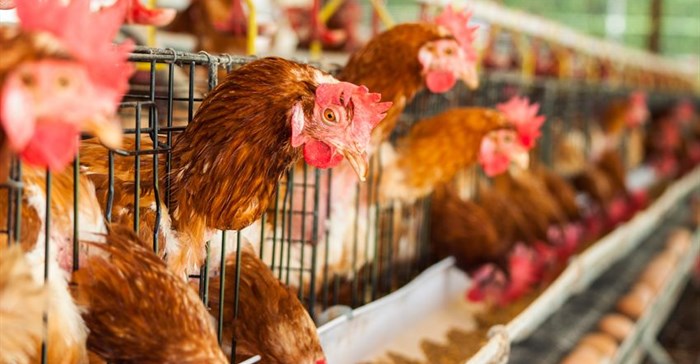CAPE TOWN - The outbreak of avian flu at a turkey farm in Indiana will not affect US poultry exports to SA as this possibility was dealt with in the recent agreements concluded between the two countries.
In terms of the agreement, a regional approach will be adopted so that only exports from infected states will be prohibited and can only resume 90 days after the disease has been stamped out and farms disinfected.
However, the South African Poultry Association believes that this protocol is seriously defective.
The US Centers for Disease Control and Prevention announced the detection of a new strain of avian influenza H7N8 at the farm last week.
This comes as SA is on the verge of receiving the first shipment of US bone-in chicken portions in terms of an agreement to allow 65,000 tonnes of such meat into the country annually free of anti-dumping duties.
The concession was a condition for the continued enjoyment of certain South African products of tariff-free access to the US under the African Growth and Opportunity Act.
The disease outbreak has prompted South Korea to halt imports of US poultry and poultry meat (excluding heat-treated poultry meat) just two months after shipments were resumed.
South African Poultry Association CEO Kevin Lovell said the industry was concerned about the outbreak of avian flu in Indiana as it did not believe the "scientifically flawed" protocol provided adequate protection for South African flocks.
Lovell said the regional approach did not provide for testing of flocks outside the infected state to ensure they were disease-free, rather than assuming that this was so as the US was now doing. He said what was required was that a total ban be placed on all chicken exports from the US until such time as the US administration had verified scientifically that flocks in other states were disease-free.
"What needs to be done is to interrupt trade for sufficient time to do enhanced sampling to prove that you are clear in the other states. This agreement does not allow for that. It is a very poor protocol in our view," he said.
In terms of the protocol between the US and SA the US department of agriculture will only have to submit a full surveillance report of unaffected states no later than 120 days after the initial outbreak of the disease.
During the initial stage of the negotiations with the US, South African veterinarians were adamant that safe trade in the presence of highly pathogenic avian flu was only possible if it had been established that poultry was not in contact with infected wild birds. They argued that regionalisation could not work as contact with wild birds could not be controlled. In terms of the signed protocol the US gave the assurance that it would take appropriate scientific measures to ensure that the risk of transmission was "managed".
The agreements also deal with the testing and treatment of salmonella in US chicken.
Lovell criticised the side letter on salmonella as "a deeply flawed document" as it deprived SA of the ability to prohibit the entry of bad versions of salmonella into the country. The health risks for consumers would increase. The US has the highest level of salmonella of all the countries exporting chicken to SA.







































